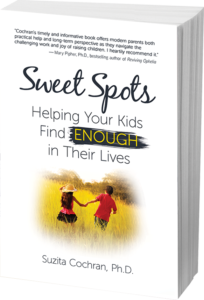Online School at Our House
Annie:
“My Spanish teacher insists on teaching class from her back deck! She thinks it’s so relaxing out there. Maybe for her it is. Yesterday her neighbor’s kids got in a fight in their yard in camera range—interesting in a way, but not much help for learning Spanish.”
“During class today she was out back again when her other neighbor began mowing his lawn. Every time the guy got close to her, we couldn’t hear a word she was saying, though she didn’t notice. Let’s say my Spanish lip reading skills were not up to the task.”
Stephen:
“At least you could see your teacher! Mine kept getting dropped from the session. After a while, the students just began going over the articles with each other since the teacher never made it back to class.”
And this is nearly 6 months into the pandemic! Not the expected schooling difficulties that occurred after most of the U.S. abruptly moved online in March. Annie and Stephen are in high school and college, not elementary school. I can only imagine how it looks for younger kids and their exhausted parents. Life in this pandemic can be so challenging—and that’s on a good day.
I try to remember that this pandemic-induced stress brings out everyone’s worst selves—or in psychology-speak, our less functional selves. I just didn’t think my worst self would be quite this bad. I’ve realized that when the going gets tough, I have the frustration tolerance of a 7 year-old. It’s not pretty.
And my husband and kids aren’t too far ahead of me. For the time being it’s as if we live in a house of 2nd graders with no teacher. More Lord of the Flies than Lord of the Rings.
Send Help
In the few moments a day that I can access my “psychologist brain” I’ve thought, you’ve worked with a lot of 7 year-olds. How would you treat a 7 year-old with low frustration tolerance, poor self-control and discipline, high distractibility, difficulty standing in others’ shoes, and trouble completing tasks?
I warned you my 7-year-old self is kind of a wreck these days. But perhaps you can relate.
In other words, how does one help a child lacking in executive functioning skills? These are the cognitive control functions needed when you have to concentrate and plan—and the skills slipping most at my house during this pandemic.
I did a little research. I’ve long been interested in executive functioning—it’s partly that the term itself sounds so smart and well-heeled. I’ve written before about teaching kids to delay gratification via the findings of the Marshmallow Study, and the many techniques the Tools of the Mind program can teach young children. But tough times call for increased measures, so I dug deeper into the research.
An article on executive functioning in 4-12 year-olds by Adele Diamond and Katherine Lee caught my eye. I figured it could also aid middle-aged parents who have regressed to the level of 4-12 year-old children during a once-in-a-lifetime coronavirus pandemic.
The Pandemic Calls for Beefing Up Our Executive Functioning Skills
The “the three questions” intervention from the article jumped out at me. These questions were part of a study on executive functioning of elementary-age children in a Tae-Kwon-Do class, and were asked of the children as the martial arts session was beginning.
The three questions are:
Where am I? (bringing focus to the present moment)
What am I doing? (noticing what’s going inside or outside oneself at the moment)
What should I be doing? (refocusing on, or re-prioritizing the short-term goal if need be)
Simply reading those mindful questions had a grounding and quieting effect on me.
How to Use the Three Questions
Consider asking these questions to your children at the beginning of an activity. If you are working with older kids doing virtual schooling, you might write these questions on post-its near the computer. For younger children, you could ask the questions at the beginning of the session and again if (when) they get distracted, off-track, or just plain antsy, to help them refocus.
We adults could also use these questions throughout our chaotic, multitasking days. And finally—and rather sadly for those of us who love quick solutions—the article authors emphasized that any executive functioning skill practice only leads to improvements if repeated over time. Still, as executive functioning help goes, this simple suggestion felt worth a try.
I have already started using the three questions with my frustrated inner-child and she is tolerating them fairly well.



 Sweet Spots: Helping Your Kids Find ENOUGH in Their Lives.
Sweet Spots: Helping Your Kids Find ENOUGH in Their Lives.

